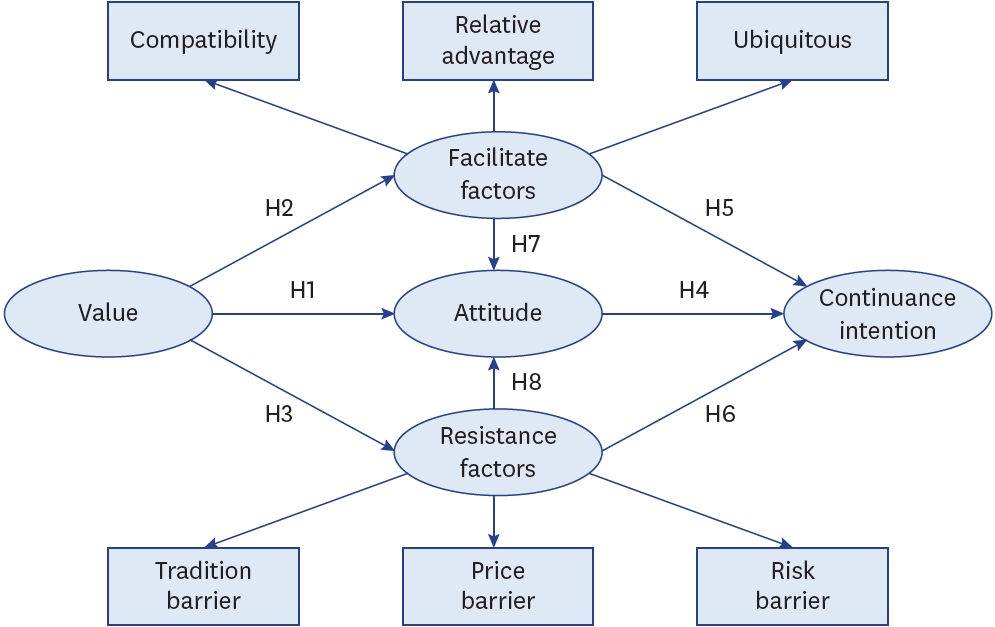- [English]
-
Factors influencing consumers’ continuance intention in online grocery shopping: a cross-sectional study using application behavior reasoning theory
-
Binglin Liu, Min A Lee
-
Korean J Community Nutr 2024;29(3):199-211. Published online June 30, 2024
-
DOI: https://doi.org/10.5720/kjcn.2024.29.3.199
-
-
 Abstract Abstract
 PDF PDF
- Objectives
Online grocery shopping has gained traction with the digital transformation of retail. This study constructs a behavioral model combining values, attitudes, and reasons for behavior—specifically, facilitators and resistance—to provide a more novel discussion and further understand the relative influences of the various factors affecting continuance intention in online grocery shopping.
Methods
Data were collected through an online questionnaire from consumers who had engaged in online grocery shopping during the past month in Seoul, Korea. All collected data were analyzed using descriptive analysis, and model validation was performed using partial least squares structural equation modeling.
Results
Continuance intention is primarily driven by facilitative factors (compatibility, relative advantage, and ubiquity). Attitude can also positively influence continuance intention. Although resistance factors (price, tradition, and risk) do not significantly affect continuance intention, they negatively affect attitude. Values significantly influence consumers’ reasoning processes but not their attitude.
Conclusions
These findings explain the key influences on consumers’ online grocery shopping behavior in Seoul and provide additional discussion and literature on consumer behavior and market management. To expand the online grocery market, consumers should be made aware of the potential benefits of the online channel; the barriers they encounter should be reduced. This will help sustain online grocery shopping behavior. Furthermore, its positive impact on attitude will further strengthen consumers’ continuance intention.
-
Citations
Citations to this article as recorded by  - Modelling the mass adoption potentials of fashion-augmented reality among the young consumers: evidence from an emerging economy
Mohima Akther, Mohammad Nurul Hassan Reza, Abdullah Al Mamun, Norzalita Abd Aziz, Marvello Yang
Journal of Fashion Marketing and Management: An International Journal.2025; 29(3): 459. CrossRef
-
6,977
View
-
83
Download
-
1
Crossref
|




